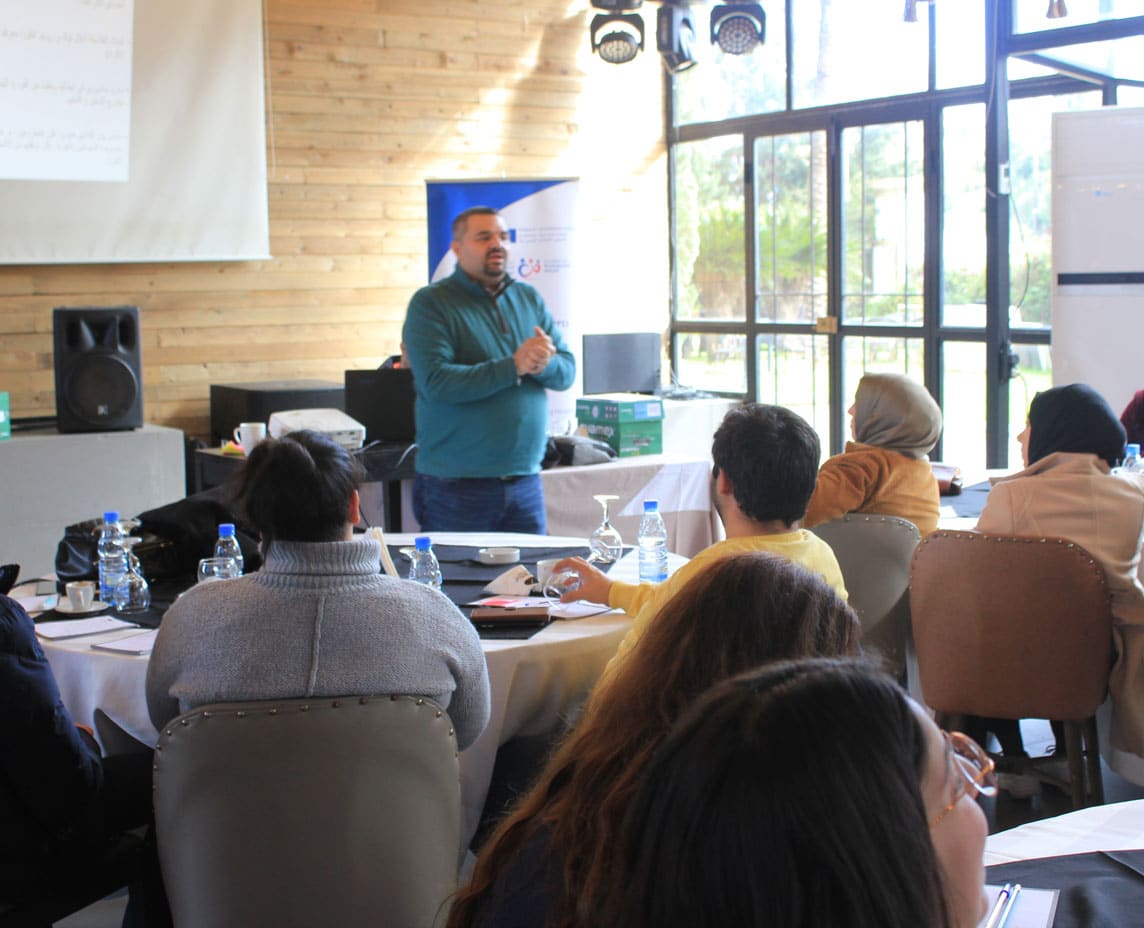During these days the training of health personnel of the Ministries of Public Health (MoPH) and Social Affairs (MoSA), humanitarian personnel of the different NGOs and agencies present in Lebanon working in the disability sector are being intensified.
The training takes place throughout the Lebanese territory and is given to 1,200 professionals in Lebanon.
The main objective is to ensure that these professionals become familiar with key issues about disability, especially in the field of health care, and thus be able to respond to the needs of people with disabilities with whom they work directly in the health centers and specialized services.
According to Dr. Ibrahim, the Technical Advisor of this project, the training sessions for health professionals from the public sector, NGOs and agencies, are aimed at raising awareness about the reality of these people and offering them keys that allow them improve their communication skills with them.

Training sessions are designed to be inclusive and ensure the participation of people with disabilities.
This training program runs away from obsolete topics and includes new tools and visions such as the protocol of the Convention on the Rights of Persons with Disabilities (CRPD).
One of the objectives is to show participants how to distinguish between more than 14 types of disabilities, when in Lebanon many health professionals classify cases into only four categories.
The objective is that they approach the concept of disability as a charitable activity, or from a religious or medical point of view until we can show them a human rights-based approach.
In his words, training shows professionals how to treat people with disabilities, how to understand their problems, how to address them and communicate with them optimally.
Doha Yahfoufi, Health Coordinator and Occupational Therapist, tells us that there is an erroneous conception among health professionals, in daily contact with people with disabilities, which leads them to consider disability as a lack of capacity, unintentionally locating to these people on a lower level. The Project tries to avoid stereotypes and discriminatory situations.

According to her, the project addresses the need to improve the health services of persons with disabilities, both from Syrian refugees and from the local population, raising awareness and training of the health professionals who serve them.
Doha tells us that many health professionals when they are told about the possibility of participating in the training sessions state that they already know everything about people with disabilities and how to treat them, however, for the most part, after receiving the training, state that training in the topics addressed has been key in improving communication with people with disabilities and in improving their care.
In a second phase, a group that will participate in a training session of trainers will be chosen from among the participants of the different sessions and will allow them to give training sessions in their different organizations of origin, guaranteeing the multiplier effect of the program.
Last Wednesday, January 29, one of the sessions directed in this case to NGO professionals working in the field of health, took place in Tripoli, in northern Lebanon.
The training session was given by Dr. Hassane Sharif, Doctor of Physiotherapy, who highlighted the importance of this program in order to promote inclusion in Lebanese society
The project “Improving access to quality health care for persons with disabilities in Lebanon”, carried out in partnership with International Medical Corps UK (IMC), is a new component of MADAD-REBAHS, and is funded by the Directorate General of Neighborhood and Enlargement Negotiations (DG NEAR) of the European Commission and is based on the general objective of the Regional Trust Fund of the European Union in response to the Syrian Crisis (“MADAD Fund”).









